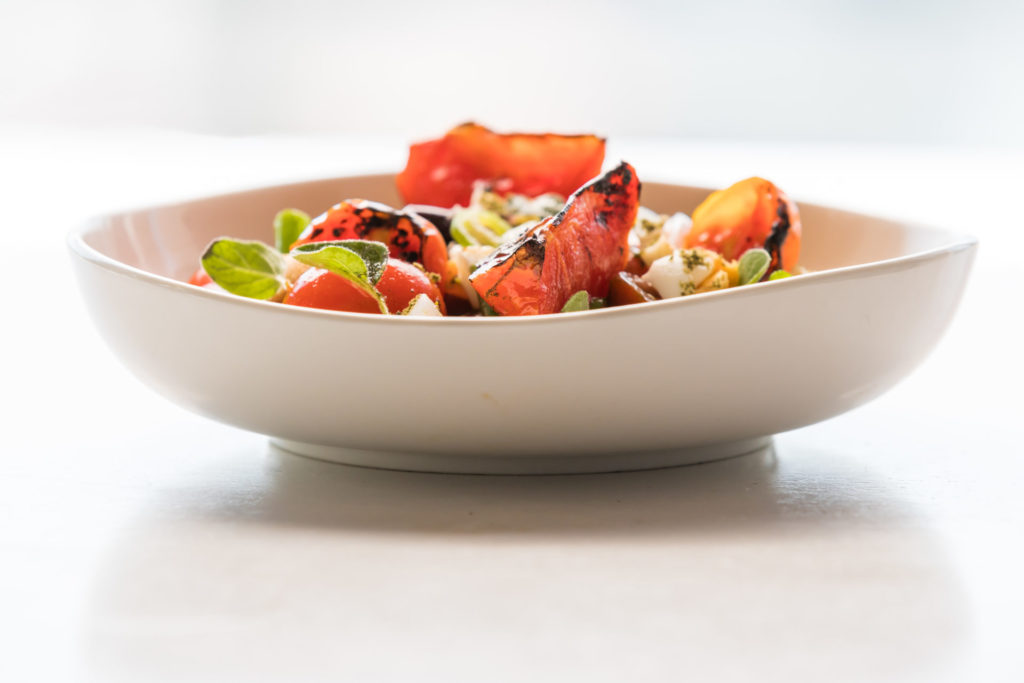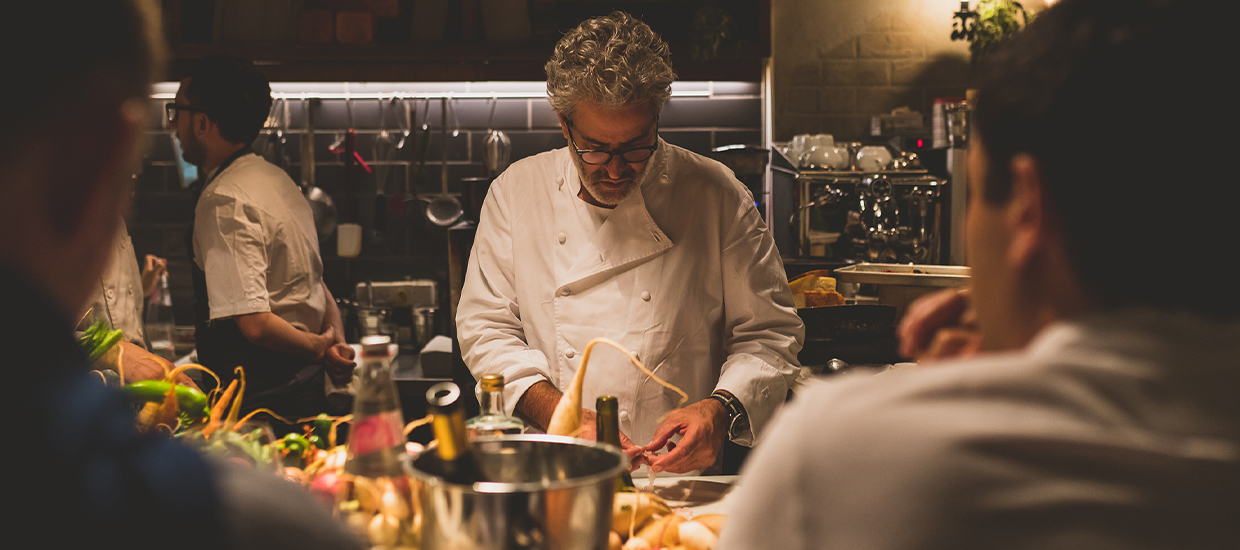For obvious reasons, Israel has long been the epicenter of global kosher cuisine. But in recent years, observant foodies have been more likely to head for Jerusalem than attempt to navigate the acclaimed but often non-kosher dining scene in Tel Aviv.
Today, though, Israel’s unabashedly secular second city is in the midst of a quiet revolution, as many of its sought-after new restaurants are fully kosher-certified.
According to local chefs, the trend is less about tradition than it is about changing tastes. “While it used to be that fancy kosher restaurants were just for tourists, today Israelis eat out a lot,” says Tel Aviv-based cookbook author Adeena Sussman. “Half of Israelis keep kosher, and with so many cooking shows on television, average Israelis have gotten very involved in the culinary scene.”
Swapping Out
While Tel Aviv diners have often considered kosher synonymous with tasteless, celebrity chefs here are applying a new creativity to the ancient dietary laws, which include the prohibition of pork, shellfish, and the mixing of meat and milk. (In fact, by kosher law, a restaurant that has meat on the menu cannot serve any dairy, and vice versa.) When the avowedly un-kosher MasterChef Israel judge Yonatan Roshfeld decided to do a kosher restaurant—Herbert Samuel at the Ritz-Carlton, Herziliya, which is now run by chef Mor Cohen—he eliminated the dairy from his classic tomato salad, removing the creamy white cheese in favor of soft-boiled eggs.

Culinary star Eyal Shani also made a key substitution. While he serves a lamb kebab with yogurt at his hot spot North Abraxas, at his first kosher place, Malka, he created a kebab that’s “dripping in oil” and “nestled in an infused focaccia with herbs and field vegetables”.
Meanwhile, at Bodega, an American-style burger joint in the city’s business district, chef Todd Aarons concocts a kosher bacon-cheeseburger by salting and smoking his own bacon from lamb belly and making vegan cheese using coconut oil and sea salt. The result is delicious, no matter your level of observance.
“If your target is to make great kosher food, you’ll fail,” says Bodega co-owner James Oppenheim. “If your target is to make great food that just happens to be kosher, then you’ve got a shot.”
Up Next: Three Perfect: Days Tel Aviv
